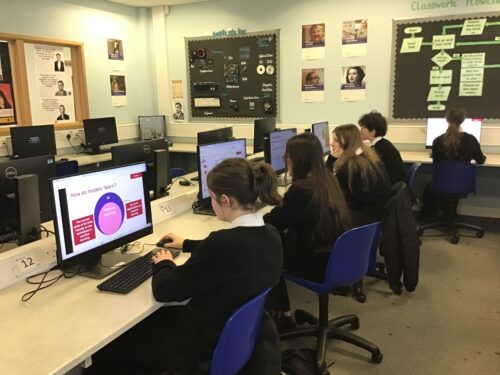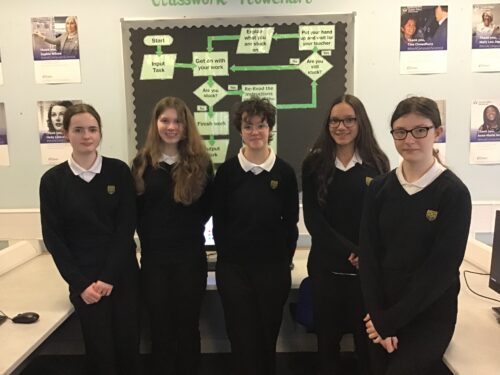Developed by us and Google DeepMind, Experience AI provides teachers with free resources to help them confidently deliver lessons that inspire and educate young people about artificial intelligence (AI) and the role it could play in their lives.
Tracy Mayhead is a computer science teacher at Arthur Mellows Village College in Cambridgeshire. She recently taught Experience AI to her KS3 pupils. In this blog post, she shares 4 key learnings from this experience.

1. Preparation saves time
The Experience AI lesson plans provided a clear guide on how to structure our lessons.
Each lesson includes teacher-facing intro videos, a lesson plan, a slide deck, activity worksheets, and student-facing videos that help to introduce each new AI concept.
It was handy to know in advance which websites needed unblocking so students could access them.
You can find a unit overview on the Experience AI website to get an idea of what is included in each lesson.
“My favourite bit was making my own model, and choosing the training data. I enjoyed seeing how the amount of data affected the accuracy of the AI and testing the model.” – Student, Arthur Mellows Village College, UK
2. The lessons can be adapted to meet student’s needs
It was clear from the start that I could adapt the lessons to make them work for myself and my students.
Having estimated times and corresponding slides for activities was beneficial for adjusting the lesson duration. The balance between learning and hands-on tasks was just right.

I felt fairly comfortable with my understanding of AI basics. However, teaching it was a learning experience, especially in tailoring the lessons to cater to students with varying knowledge. Their misconceptions sometimes caught me off guard, like their belief that AI is never wrong. Adapting to their needs and expectations was a learning curve.
“It has definitely changed my outlook on AI. I went from knowing nothing about it to understanding how it works, why it acts in certain ways, and how to actually create my own AI models and what data I would need for that.” – Student, Arthur Mellows Village College, UK
3. Young people are curious about AI and how it works
My students enjoyed the practical aspects of the lessons, like categorising apples and tomatoes. They found it intriguing how AI could sometimes misidentify objects, sparking discussions on its limitations. They also expressed concerns about AI bias, which these lessons helped raise awareness about. I didn’t always have all the answers, but it was clear they were curious about AI’s implications for their future.
It’s important to acknowledge that as a teacher you won’t always have all the answers especially when teaching AI literacy, which is such a new area. This is something that can be explored in a class alongside students.
There is an online course you can use that can help get you started teaching about AI if you are at all nervous.
“I learned a lot about AI and the possibilities it holds to better our futures as well as how to train it and problems that may arise when training it.” – Student, Arthur Mellows Village College, UK
4. Engaging young people with AI is important
Students are fascinated by AI and they recognise its significance in their future. It is important to equip them with the knowledge and skills to fully engage with AI.
Experience AI provides a valuable opportunity to explore these concepts and empower students to shape and question the technology that will undoubtedly impact their lives.
“It has changed my outlook on AI because I now understand it better and feel better equipped to work with AI in my working life.” – Student, Arthur Mellows Village College, UK

What is your experience of teaching Experience AI lessons?
We completely agree with Tracy. AI literacy empowers people to critically evaluate AI applications and how they are being used. Our Experience AI resources help to foster critical thinking skills, allowing learners to use AI tools to address challenges they are passionate about.
We’re also really interested to learn what misconceptions students have about AI and how teachers are addressing them. If you come across misconceptions that surprise you while you’re teaching with the Experience AI lesson materials, please let us know via the feedback form linked in the final lesson of the six-lesson unit.
If you would like to teach Experience AI lessons to your students, download the free resources from experience-ai.org
Website: LINK

